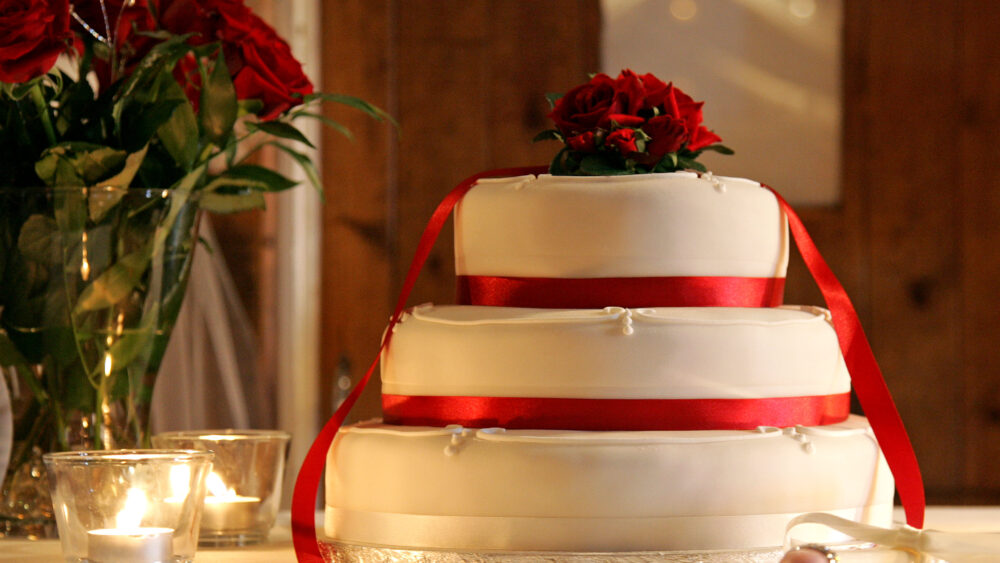US Supreme Court rules for baker in same-sex wedding case
However the outcome in other cases could be different
The US Supreme Court has ruled in favour of the Colorado baker who refused to create a wedding cake for a gay couple in 2012 in a case that has divided opinion among Christians.
In 2012, a same-sex couple visited Masterpiece Cakeshop in Colorado to make inquiries about ordering a cake for their wedding reception. Shop owner Jack Phillips told the couple he would not create a cake for their wedding because of his religious opposition to same-sex marriages – marriages the State of Colorado did not recognise at that time.
“To Phillips, his claim that using his artistic skills to make an expressive statement, a wedding endorsement in his own voice and of his own creation, has a significant First Amendment speech component and implicates his deep and sincere religious beliefs,” the court said in its majority ruling.
Instead of creating a cake for the wedding, Phillips suggested the couple could buy other baked items from his shop, such as a birthday cake. The couple filed a charge with the Colorado Civil Rights Commission alleging discrimination on the basis of sexual orientation in violation of the Colorado Anti-Discrimination Act.
The commission ruled in favour of the same-sex couple and the Colorado state courts affirmed the ruling. Overnight, the US Supreme Court ruled 7-2 with the baker.
The commission had described Phillip’s faith as “one of the most despicable pieces of rhetoric that people can use”.
While the ruling was in Phillip’s favour, the court made it clear that similar cases of other Christian service providers such as florists and photographers might have a different outcome:
“The outcome of cases like this in other circumstances must await further elaboration in the courts, all in the context of recognising that these disputes must be resolved with tolerance, without undue disrespect to sincere religious beliefs, and without subjecting gay persons to indignities when they seek goods and services in an open market.”
In an opinion delivered by Justice Anthony Kennedy, the court said that while “the laws and the Constitution can, and in some instances must, protect gay persons and gay couples in the exercise of their civil rights … religious and philosophical objections to gay marriage are protected views and in some instances protected forms of expression.”
The case turned on the facts of Phillip’s particular case, and it was held that Phillips had not been given “neutral and respectful consideration of his claims”. Justice Kennedy ruled that the commission’s treatment of Phillip’s case had “some elements of a clear and impermissible hostility toward the sincere religious beliefs that motivated his objection”.
The commission had described Phillip’s faith as “one of the most despicable pieces of rhetoric that people can use”. The Supreme Court said the Commissioner also went too far in comparing Phillip’s beliefs to defences of slavery and the Holocaust. “This sentiment is inappropriate for a Commission charged with the solemn responsibility of fair and neutral enforcement of Colorado’s anti-discrimination law – a law that protects discrimination on the basis of religion as well as sexual orientation.”
“On one level I’m thrilled and on another level deeply sad as I think we should just make cakes for all people.” – David Bennett
Nei Foster, Associate Professor of Law at the University of Newcastle, and author of the “Law and Religion” blog told Eternity that while Australia doesn’t yet have it’s own cake baker case, decisions like this in the US Supreme Court “set a trend”.
“It shows that a sensible court can recognise that there are serious issues to balance and that there are plausible arguments on both sides.”
David Bennett, a fellow at the Oxford Centre for Christian Apologetics, and practising Christian and celibate gay man said on Facebook that he was “torn” about the decision.
“On one level I’m thrilled and on another level deeply sad as I think we should just make cakes for all people and let them put their own labels on them, and the Christian response is to love all.”
Meanwhile, Lyle Shelton, spokesperson for the Australian Conservatives and lead Senate candidate for the party in Queensland, said the decision was “a victory for common sense” and called on the Turnbull Government to protect the marriage beliefs of Australians.
“The challenge now for the Turnbull Government in the wake of the Ruddock inquiry into religious freedom will be to make sure activists don’t drag Australians through our courts because of their belief about marriage.”
It is three years since the US Supreme Court made same-sex marriage the law of the land in the landmark Obergefell v Hodges decision.
Email This Story
Why not send this to a friend?




